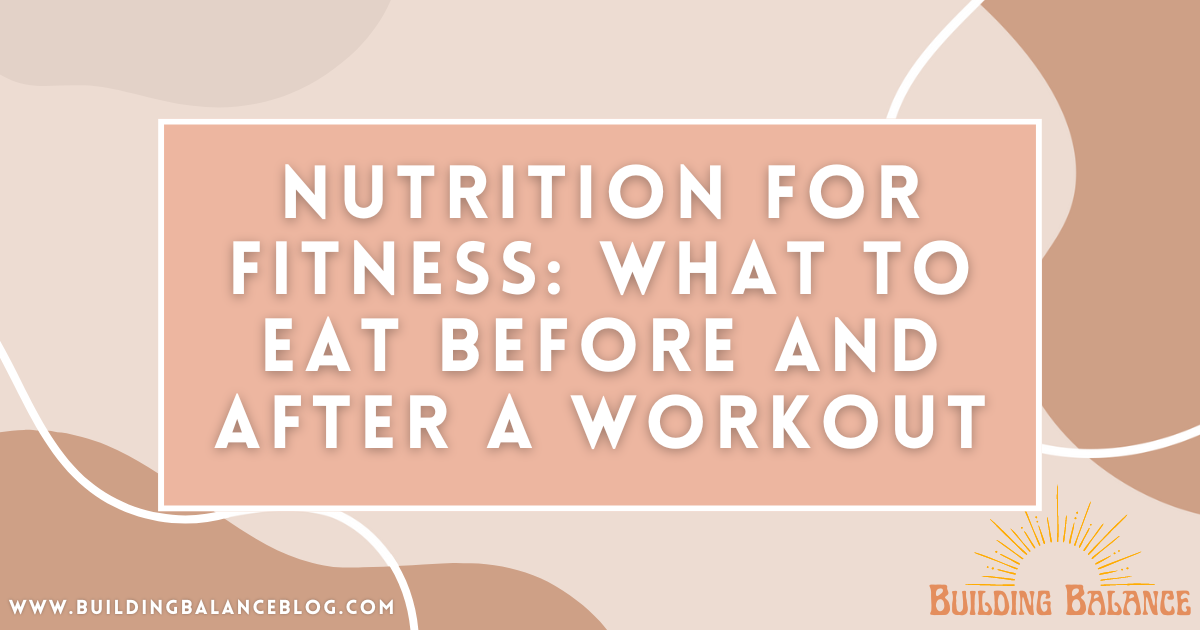
When it comes to fitness, exercise is only part of the equation. Nutrition plays a critical role in maximizing the benefits of your workouts and supporting overall health. Understanding what to eat before and after a workout can help you optimize your performance, recovery, and results. In this blog post, we’ll delve into the specifics of pre- and post-workout nutrition to help you fuel your fitness journey effectively.
Pre-Workout Nutrition: Fueling Your Performance
Eating before a workout is crucial for providing your body with the energy it needs to perform at its best. The right pre-workout meal or snack can enhance your endurance, strength, and focus, while also preventing fatigue and muscle breakdown. Here are some key components to consider for pre-workout nutrition:
1. Timing
Ideally, you should aim to eat a balanced meal 2-3 hours before your workout. This allows your body enough time to digest and absorb the nutrients. If you’re short on time, a smaller snack 30-60 minutes before exercising can also be beneficial.
2. Carbohydrates
Carbohydrates are your body’s primary source of energy during exercise. They provide the fuel needed for high-intensity and endurance activities. Opt for complex carbohydrates, such as whole grains, fruits, and vegetables, which provide a steady release of energy. Simple carbs like sugary snacks can cause a quick spike in energy followed by a crash, which can be detrimental during your workout.
Examples of Pre-Workout Carbs:
– Oatmeal with fruit
– Whole grain toast with banana
– Brown rice and vegetables
– A fruit smoothie
3. Protein
Including protein in your pre-workout meal can help preserve muscle mass and support muscle repair. Protein is especially important if you’re engaging in strength training or resistance exercises. Lean sources of protein such as chicken, turkey, tofu, or Greek yogurt are excellent choices.
Examples of Pre-Workout Protein:
– Greek yogurt with berries
– Chicken and vegetable stir-fry
– Cottage cheese with pineapple
– Protein smoothie with spinach
4. Fats
While fats are an essential part of a balanced diet, they are slower to digest and may not be ideal in large quantities right before a workout. However, small amounts of healthy fats, such as those from nuts or avocado, can be included in your pre-workout meal.
Examples of Healthy Fats:
– A handful of nuts
– Sliced avocado on whole grain toast
– A small serving of hummus with veggies
Hydration
Staying hydrated is vital for optimal performance. Drink plenty of water throughout the day and consider consuming 8-16 ounces of water 30 minutes before your workout. For longer or more intense workouts, electrolyte-rich drinks can help maintain hydration levels.
Post-Workout Nutrition: Maximizing Recovery
After a workout, your body enters a recovery phase where it needs nutrients to repair muscles, replenish glycogen stores, and support overall recovery. Consuming the right foods post-workout can significantly enhance your recovery process.
1. Timing
The post-workout “anabolic window” refers to the period after exercise when your body is most receptive to nutrient absorption. While this window was once thought to be within 30 minutes to an hour post-exercise, recent research suggests that the window may be broader. Nevertheless, it’s a good practice to consume a post-workout meal or snack within two hours of finishing your workout.
2. Protein
Protein is crucial for muscle repair and growth. Aim to consume 20-30 grams of high-quality protein post-workout. This helps stimulate muscle protein synthesis and aids in recovery. Whey protein is a popular post-workout choice due to its fast absorption rate, but other sources like eggs, chicken, or plant-based proteins are also effective.
Examples of Post-Workout Protein:
– Whey protein shake
– Grilled chicken breast
– Scrambled eggs
– Tofu stir-fry
3. Carbohydrates
Carbohydrates are essential for replenishing glycogen stores that were depleted during exercise. The amount you need will depend on the intensity and duration of your workout. Aim for a 3:1 or 4:1 ratio of carbs to protein for optimal recovery.
Examples of Post-Workout Carbs:
– Sweet potatoes
– Quinoa
– Brown rice
– Whole grain pasta
4. Fats
Including healthy fats in your post-workout meal can help with overall nutrient absorption and provide sustained energy. However, it’s important to balance fat intake with the need for faster-digesting nutrients like carbs and protein.
Examples of Healthy Fats:
– A small serving of nuts
– Avocado slices
– Olive oil drizzled on vegetables
Hydration
Rehydration is a crucial aspect of post-workout nutrition. Drink plenty of water to replace fluids lost through sweat. For intense or long-duration workouts, consider beverages that provide electrolytes to help restore balance.
Sample Pre- and Post-Workout Meals
Pre-Workout Meal (2-3 hours before):
– Grilled chicken breast
– Quinoa
– Steamed broccoli
– A small apple
Pre-Workout Snack (30-60 minutes before):
– A banana with a spoonful of almond butter
– Greek yogurt with a handful of berries
Post-Workout Meal:
– Salmon filet
– Sweet potato mash
– Steamed asparagus
– A glass of water with a splash of lemon
Post-Workout Snack:
– Whey protein shake with a banana
– Cottage cheese with pineapple
Proper nutrition before and after your workouts is essential for maximizing performance, enhancing recovery, and achieving your fitness goals. By focusing on balanced meals that include carbohydrates, protein, and healthy fats, and staying well-hydrated, you can support your body’s needs and optimize your fitness results. Remember, everyone’s nutritional requirements are different, so it’s important to listen to your body and adjust your intake based on your personal needs and workout intensity.

